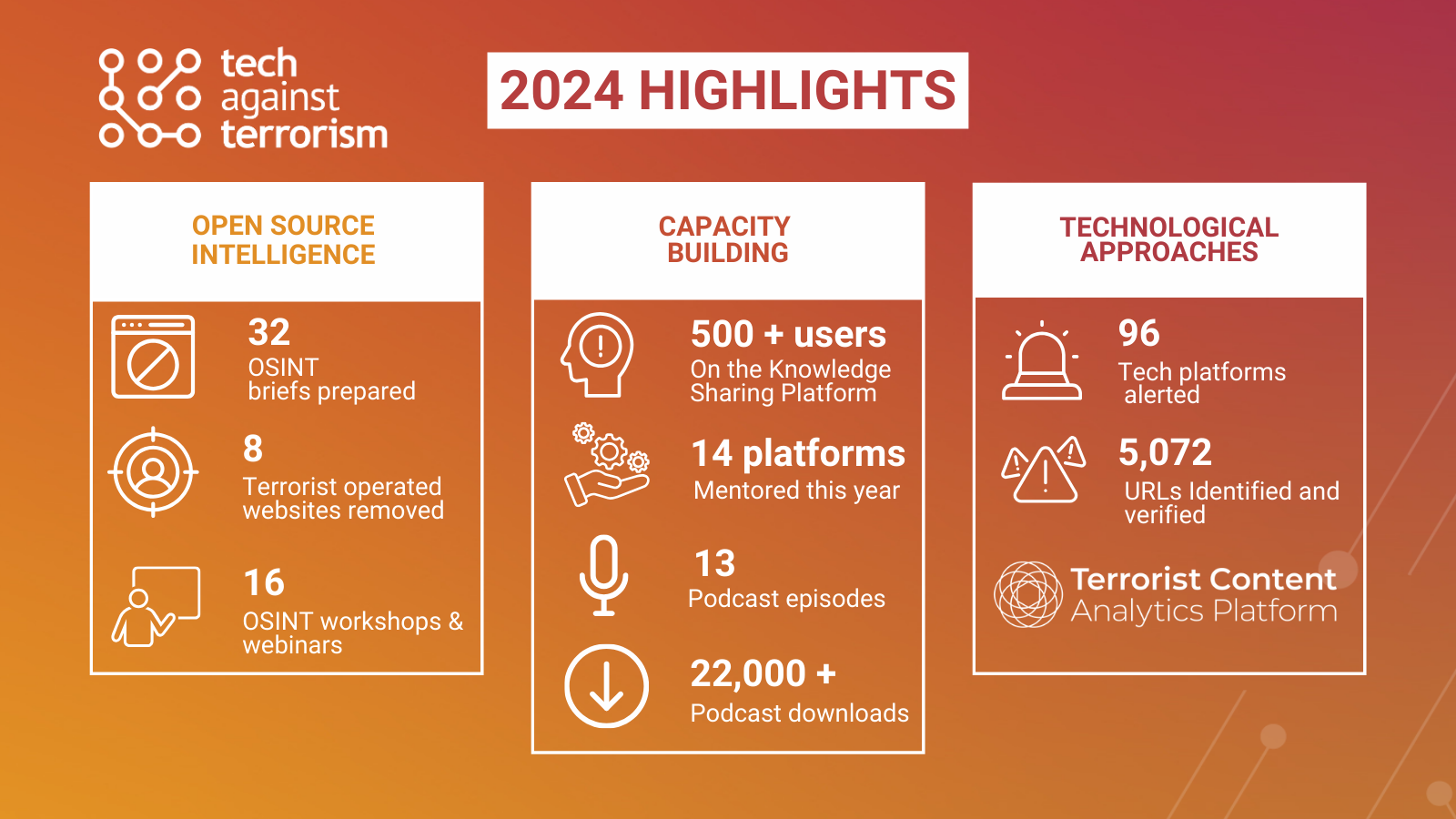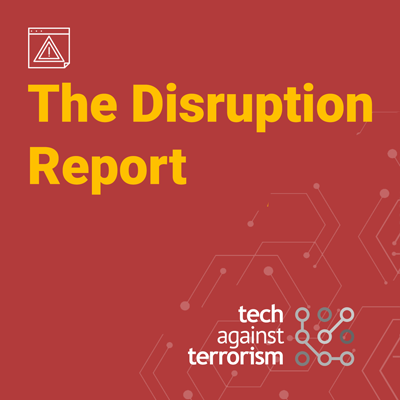3 min read
Christchurch Call Leaders’ Summit 2023: Tech Against Terrorism Calls for Effective Responses to Terrorist Crises
Tech Against Terrorism Nov 13, 2023 12:10:00 PM
Tech Against Terrorism joined leaders from governments, online platforms, civil society, and partners of the Christchurch Call at the Elysée Palace in Paris to share its perspective on effectively tackling terrorist and violent extremist content online.
Tech Against Terrorism took part in the Christchurch Call Leaders’ Summit at the Paris Peace Forum on 10 November 2023. The Christchurch Call is a forum for upholding the commitment by online service providers, governments, and civil society to promote and respect human rights, and a free, open, secure internet, which was established in the aftermath of the 2019 terrorist attack in Christchurch, New Zealand.
Reviewing Crisis Responses
Held soon amidst the backdrop of the terrorist attack on 7 October and the continuing debate on artificial intelligence, Tech Against Terrorism called for a review of government and industry crisis responses and urged policymakers not to neglect the fundamentals of online safety in the rush to harness the potential of new technology.
Speaking at a dinner hosted by President Emanuel Macron at the Elysée Palace on the eve of the Paris Peace Forum, Adam Hadley, Executive Director of Tech Against Terrorism said:
“At Tech Against Terrorism, our particular concern at present is not that terrorists are using generative AI, although Hamas and Hezbollah are trying to use generative AI image creation and similar tools. The more pressing concern is that […] terrorists are going ‘back to the future’ and relying on websites, which are very difficult to take down.”
Addressing the Leaders’ Summit of the Christchurch Call, Adam emphasised that many of the areas of most significant vulnerability to terrorist exploitation were not new, stating that terrorist-operated websites “distribute terabytes of data unchecked [while] one messaging app remains a veritable hub of terrorist internet use.”
While the previous summit of the Christchurch Call had identified the inadequacy of collective crisis response, Adam suggested that the 7 October attack on Israel showed that very little had changed. Furthermore, the burden of intervening against terrorist content continued to fall on those willing to do so:
“Governments and tech companies took days or weeks to respond, with minimal transparency when they eventually did so. Tech Against Terrorism was compelled to act, and we detected and reported thousands of related videos and images, but why did this fall to a small NGO?”
Looking to the future, Adam proposed a crisis response capability which could operate around the clock. The Joint Statement issued by the leaders in attendance explicitly commended the approach adopted by Tech Against Terrorism in the Incident Response Policy envisaged for the Terrorism Content Analytics Platform (TCAP), whose expansion with funding from the Government of Canada was welcomed.
The TCAP Incident Response Policy proposes assigning different types of content to distinct workflows to allow for different paces and courses of action as a crisis unfolds.
Forging Technical Approaches to Countering Terrorism Online
In their Joint Statement, the leaders in attendance also welcomed two Tech Against Terrorism partnerships intended to make participation in the battle against online terrorism more accessible to the entirety of the tech sector.
Tech Against Terrorism’s partnership with Microsoft will investigate the potential of generative AI to enhance content moderation and develop scalable and adaptable tools for the tech sector. Tech Against Terrorism will provide secure access to the TCAP to allow Microsoft researchers, in collaboration with our own OSINT experts, to use its data to train Microsoft’s Azure AI Content Safety platform to better recognise and moderate terrorist content.
Tech Against Terrorism has also partnered with Jigsaw to develop Altitude. This free and open-source tool uses trusted sources of terrorist content to give platforms a bird’s-eye view of terrorist exploitation of their services. Altitude has been designed with the specific purpose of enabling medium-sized tech platforms to better identify areas of concern and to develop relevant mitigation strategies in a resource-efficient manner.
Full remarks by Adam Hadley at the Leaders' Summit:
Thank you, Mr President and representatives, for your leadership in counterterrorism and upholding human rights. Tech Against Terrorism is an NGO of 20 people focused on disrupting terrorists' internet use to save lives. But more than anything, we aim to drive action in the face of political inertia. With your permission, I will address three issues.
Firstly, crisis response. Last year's Christchurch Call highlighted gaps, yet little happened after October 7. Governments and tech companies took days or weeks to respond, with minimal transparency when they eventually did so. Tech Against Terrorism was compelled to act, and we detected and reported thousands of related videos and images, but why did this fall to a small NGO? Collectively, we must improve. We propose a 24/7 crisis response capability and the development of policies to protect victims' dignity online.
Secondly, AI is a threat and opportunity. We must minimise the time lag between misuse of Generative AI and our response.
Thirdly, while the implications of AI for the task of content moderation are potentially profound, 300 terrorist websites from ISIS, al-Qaeda, and others distribute terabytes of data unchecked. What's the point of referring content to platforms if terrorists operate openly? Furthermore, one messaging app which I will not name publicly remains a veritable hub of terrorist internet use. This whole ecosystem demands disruption: it is absurd that an NGO should be required to drive intervention against Hamas channels, and the situation demands action.
In summary, we cannot fail to act against the existing threats while we shape the application of new technologies for the benefit of us all. There is no room for inertia. We appreciate your leadership and stand ready to support this mission. Thank you.

Disrupting Terrorism Online in 2024
A review by Adam Hadley CBE, Executive Director, Tech Against Terrorism. Dear partners and stakeholders,

Tech Against Terrorism alert tech platforms to online terrorist and violent extremist content from Israel-Palestine
In response to the continuing violence in Israel and Gaza since Saturday, 7 October 2023, Tech Against Terrorism has monitored online threats to life...